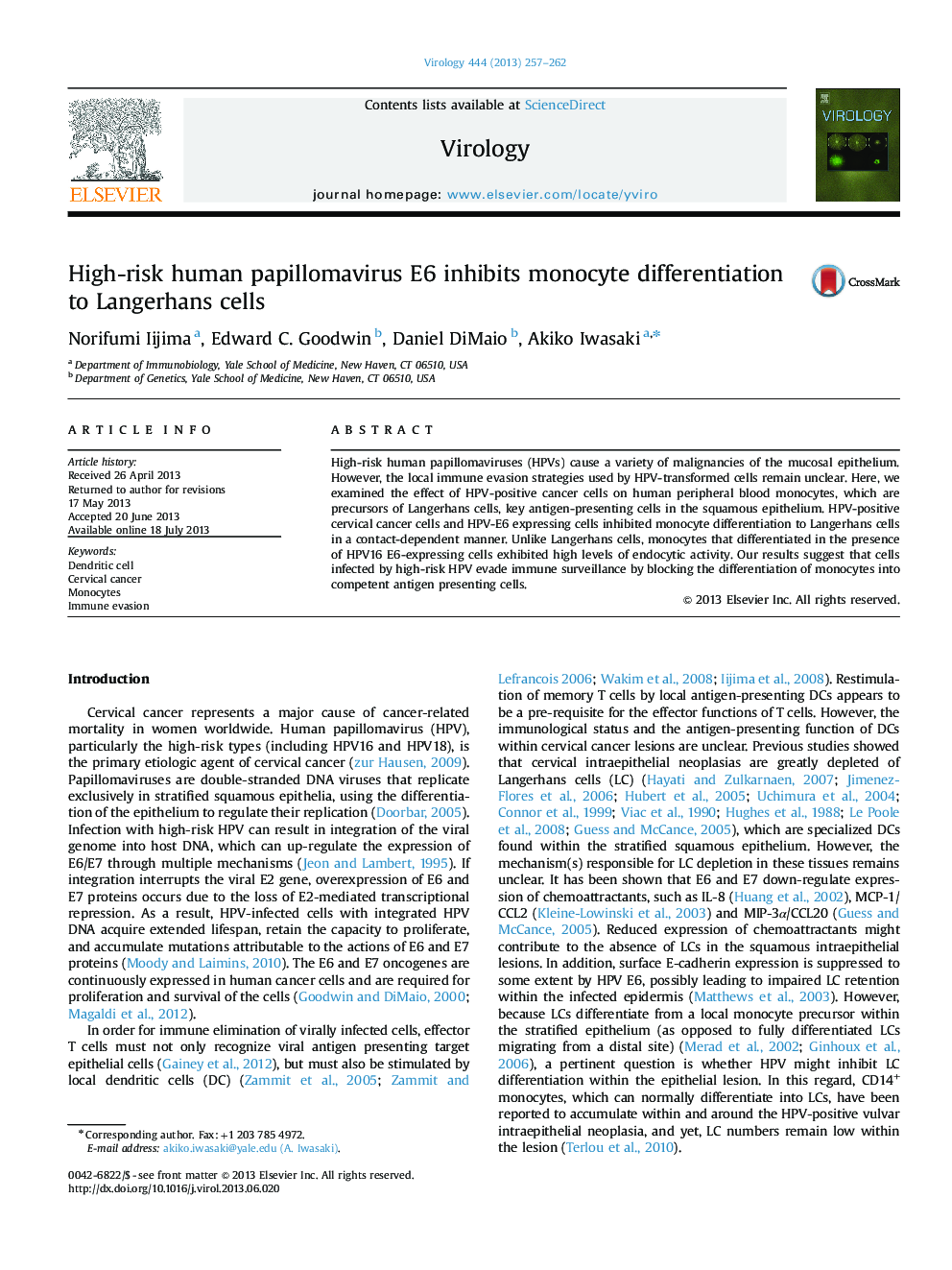| Article ID | Journal | Published Year | Pages | File Type |
|---|---|---|---|---|
| 6140882 | Virology | 2013 | 6 Pages |
â¢HPV-transformed cells inhibit monocyte differentiation into Langerhans cell in culture.â¢Inhibition of monocyte differentiation requires cell-to-cell contact between monocytes and HPV positive cervical cancer cells.â¢Ectopic expression of HPV E6, but not E7, confers this inhibitory activity.
High-risk human papillomaviruses (HPVs) cause a variety of malignancies of the mucosal epithelium. However, the local immune evasion strategies used by HPV-transformed cells remain unclear. Here, we examined the effect of HPV-positive cancer cells on human peripheral blood monocytes, which are precursors of Langerhans cells, key antigen-presenting cells in the squamous epithelium. HPV-positive cervical cancer cells and HPV-E6 expressing cells inhibited monocyte differentiation to Langerhans cells in a contact-dependent manner. Unlike Langerhans cells, monocytes that differentiated in the presence of HPV16 E6-expressing cells exhibited high levels of endocytic activity. Our results suggest that cells infected by high-risk HPV evade immune surveillance by blocking the differentiation of monocytes into competent antigen presenting cells.
